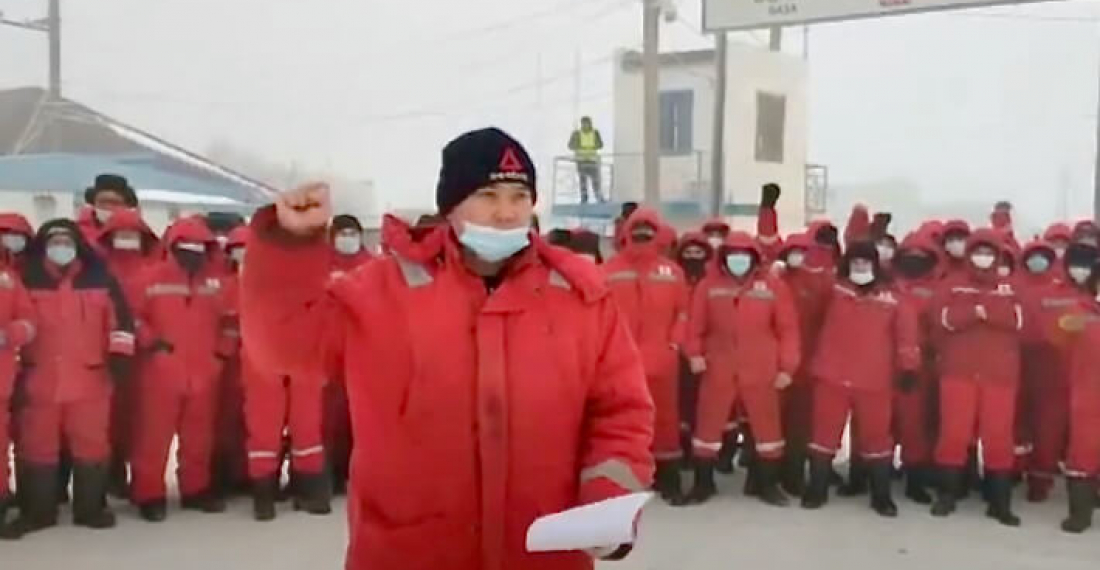On Monday (25 January), oil workers at the KMK-Munai JSC company in the Temir district of the Aktobe region of Kazakhstan stopped work. In a video message to President Kassym-Zhomart Tokayev, the workers called for wage increases.
According to local news sources, more than 100 workers participated in the strike. The workers demanded a doubling of wages and the creation of normal living conditions in the hostel where they are accommodated. The workers said their salaries were lower than other oil companies and called for a commission to be sent out to resolve the issues.
"We workers of KMK Munai (a subsidiary of China's CNPC Aktobemunaigas), located in the Temir district of Aktobe region, are asking for our salaries to be increased by 100%," the oil workers said in the video message.
A committee led by the deputy of the region Akim Salimgerei Bekbergenov, was established to negotiate with the striking oil workers. The commission members, including the heads of the Labour Inspection Department, the Industrial and Innovative Development Department, representatives of the Akimat, Temir District Prosecutor's Office have now already met with the strikers.
The management assured the workers of an upcoming pay rise, which is decided by the board of directors. As the solution of the problem takes time, workers were advised to return to their jobs. However, the workers were not satisfied with the reply, after which the strike continued today.
The company's management said it was continuing negotiations today to resolve the current situation.
The company is increasing oil production from year to year. According to the data published on KMK Munai's website, in 2019 it produced 486 thousand tonnes of oil, in 2018 450056 tonnes of oil, data for 2020 has not been published.







